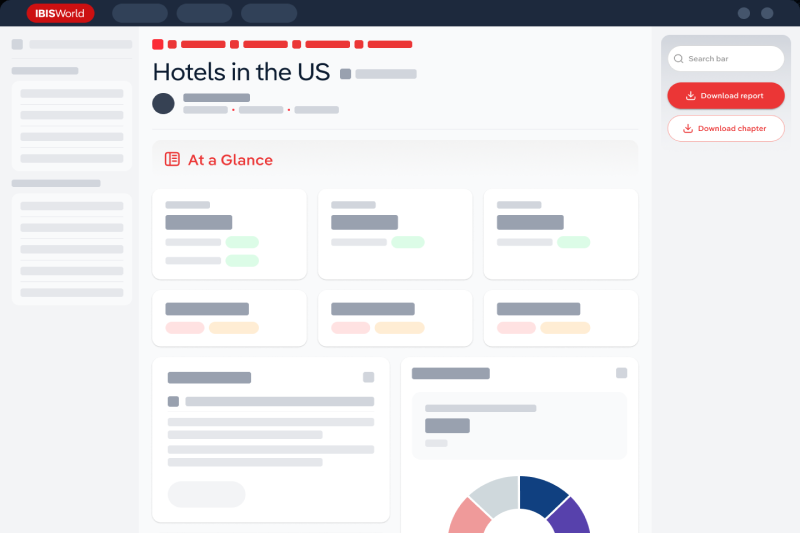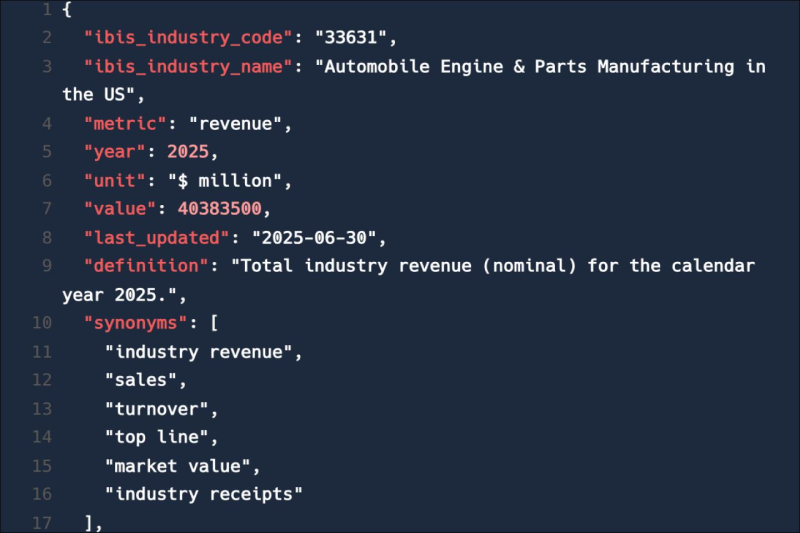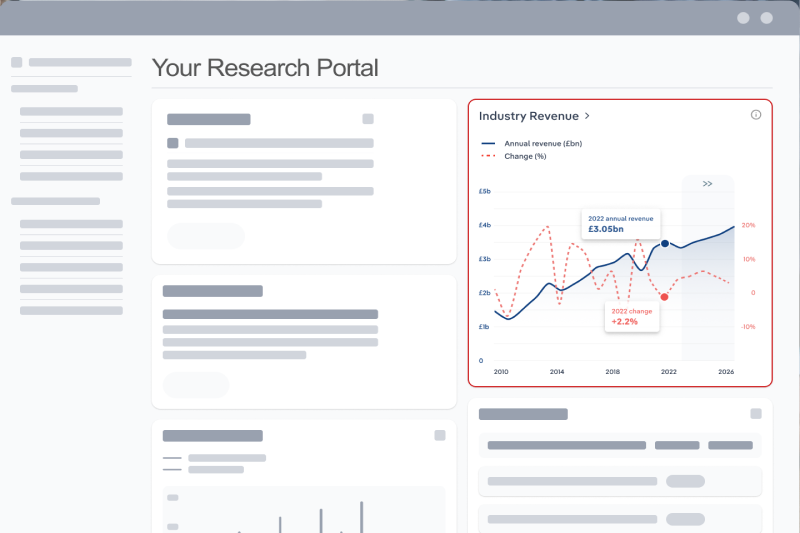IBISWorld Platform
Answer any industry question in minutes with our entire database at your fingertips.

The Tobacco Retailing industry in Serbia has a market size of €3.4m in 2026 with annual revenue growth of 7.3 %. The industry includes the retail sale of tobacco products. It also includes the sale of smoking accessories, including pipes, lighters, cigarette papers, cigar cases and other related smoking paraphernalia.

Answer any industry question in minutes with our entire database at your fingertips.

Feed trusted, human-driven industry intelligence straight into your platform.

Streamline your workflow with IBISWorld’s intelligence built into your toolkit.
IBISWorld's research coverage on the Tobacco Retailing industry in Serbia includes market sizing, forecasting, data and analysis. The most recent publication will be as current as of February 2026.
The Tobacco Retailing industry in Serbia operates under the industry code RS-G4723. The industry includes the retail sale of tobacco products. It also includes the sale of smoking accessories, including pipes, lighters, cigarette papers, cigar cases and other related smoking paraphernalia. Related terms covered in the Tobacco Retailing industry in Serbia include snuff, tobacconists and humidor.
Products and services covered in Tobacco Retailing industry in Serbia include Cigarettes, Cigars and Loose tobacco.
The Tobacco Retailing industry in Serbia is highly fragmented with no companies holding a market share greater than 5%.
The Performance chapter covers detailed analysis, datasets, detailed current performance, sources of volatility and an outlook with forecasts for the Tobacco Retailing industry in Serbia.
The Competitive Forces chapter covers the concentration, barriers to entry and supplier and buyer profiles in the Tobacco Retailing industry in Serbia. This includes data and statistics on industry market share concentration, barriers to entry, substitute products and buyer & supplier power.
The External Environment chapter covers Key Takeaways, External Drivers, Regulation & Policy and Assistance in the Tobacco Retailing industry in Serbia. This includes data and statistics on factors impacting industry revenue such as economic indicators, regulation, policy and assistance programs.
The Financial Benchmarks chapter covers Key Takeaways, Cost Structure, Financial Ratios, Valuation Multiples and Key Ratios in the Tobacco Retailing industry in Serbia. This includes financial data and statistics on industry performance including key cost inputs, profitability, key financial ratios and enterprise value multiples.
The Financial Benchmarks chapter covers Key Takeaways, Cost Structure, Financial Ratios, Valuation Multiples and Key Ratios in the Cafes and Coffee Shops industry in Australia. This includes financial data and statistics on industry performance including key cost inputs, profitability, key financial ratios and enterprise value multiples.
Questions answered in this chapter include what trends impact industry costs and how financial ratios have changed overtime.
The Industry Data chapter includes 10 years of historical data with 5 years of forecast data covering statistics like revenue, industry value add, establishments, enterprises, employment and wages in the Tobacco Retailing industry in Serbia.
More than 6,000 businesses use IBISWorld to shape local and global economies
We were able to supplement our reports with IBISWorld’s information from both a qualitative and quantitative standpoint. All of our reporting now features some level of IBISWorld integration.

IBISWorld delivers the crisp business knowledge we need to drive our business. Whether it be serving up our major clients, winning new business or educating on industry issues, IBISWorld brings real value.

IBISWorld has revolutionised business information — which has proved commercially invaluable to exporters, investors and public policy professionals in Australia and overseas.

When you’re able to speak to clients and be knowledgeable about what they do and the state that they operate in, they’re going to trust you a lot more.

The market size of the Tobacco Retailing industry in Serbia is €3.4m in 2026.
There are 5 businesses in the Tobacco Retailing industry in Serbia, which has declined at a CAGR of 11.1 % between 2020 and 2025.
The market size of the Tobacco Retailing industry in Serbia has been growing at a CAGR of 8.6 % between 2020 and 2025.
Over the next five years, the Tobacco Retailing industry in Serbia is expected to grow.
Cigarettes and Cigars are part of the Tobacco Retailing industry in Serbia.
The level of competition is moderate and steady in the Tobacco Retailing industry in Serbia.




